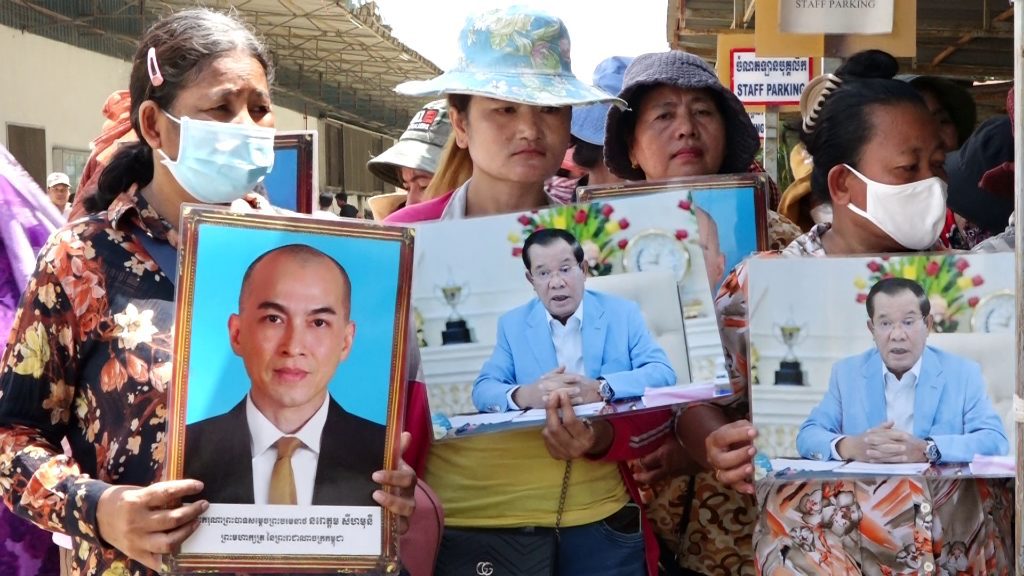More than 180 apparently government-leaning unions have accused two pro-worker labor rights groups of sowing dissent among unions to split them and affect solidarity in the workers’ movement.
The unions, some of which have had leaders affiliated with the ruling Cambodian People’s Party, released two letters which were published by government-aligned Fresh News on Wednesday. The letters are addressed to American labor advocacy group American Center for International Labor Solidarity — which runs the Solidarity Center in Cambodia — and local labor NGO Central.
The unions accuse the two groups, in two near-identical letters, that they have used workshops to fracture existing unions and create new unions, which have affected the solidarity and unity among workers. The unions say they will monitor activities of the two groups and take legal action if necessary.
“We are deeply disappointed to learn that ACILS has been trying to assist financially and technically to attract members from our organization and to establish a new one,” reads one of the letters.
The letter addressed to Central accuses the group of promising workers financial incentives if they quit their union.
Company-linked and government-affiliated unions — also known as “yellow” or “instant noodle” unions — have a major presence in Cambodia, often receiving preferential treatment when registering, and voting with employers during minimum wage negotiations. A recent report by New York-based Human Rights Watch said yellow unions were part of governmental pressure to repress independent workers’ movements in Cambodia.
The two letters come days after NagaWorld union president Chhim Sithar was arrested on her way back from Australia for allegedly violating her bail conditions. Central and other local groups have been critical of the government’s handling of the NagaWorld dispute and other violations against factory unions.
Som Aun said he is no longer with the National Union Alliance Chamber of Cambodia, which was a signatory to the letter, and now works at the Labor Ministry. The former federation president has been close to the Cambodian People’s Party and has been photographed in party gear during elections.
Tep Kimvannary, from the Cambodian Federation Independent Trade Union, and Nguon He, from the Cambodian Worker Labor Federation Union, said they were in a meeting. Both federations are signatories.
Mom Seak, from the Youth Spirit Confederation for Cambodia Labor, said he was at the same meeting but did not want to comment.
“As head of the union, I do not think I should give comments directly because I think I will not be clear and I will exaggerate a bit about what really happens. The members know it better,” he said.
Kimvannary and He’s unions come under the Cambodia Confederation of Trade Union, which is run by Chhuon Momthol. He is also closely affiliated with the CPP and linked to the Labor Ministry.
Solidarity Center director William Conklin, who is named in the letter, declined to comment. The group needs a memorandum of understanding with the government to work in the country.
Patrick Lee, a legal consultant with Central, said the letters were an attempt to distract from Sithar’s Saturday arrest and the NGO had done nothing wrong.
Lee added that the NGO was not pushing union members to break away, and even if workers wanted to leave for a new union they are allowed to under the Law on Trade Unions.
“But if they are primarily concerned about losing membership then perhaps they ought to look internally at the reasons why some of their members are dissatisfied,” he said.
Lee did not comment on the alleged political nature of the some signatories because “everyone is entitled to their political affiliations.”
Heng Sour, a Labor Ministry spokesperson, first said that this was likely an internal issue between the unions and rights groups, but then said that if the accusations were true then it could be illegal.
“However, if all of the unions’ statements are true, that could be illegal and actually discourage other unions from working with [the two NGOs],” he said.













